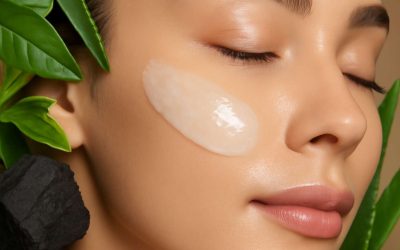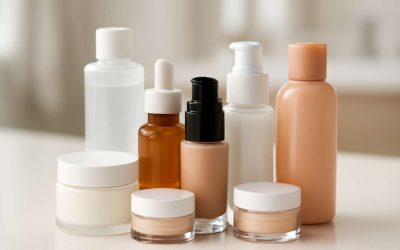
Skin products for acne vary, but most contain some kind of ingredient that kills bacteria and prevents new breakouts. Some also speed up the growth of new skin cells, which reduces the look of scarring and minimizes pores.
When selecting an acne product, find one that has a formula with ingredients your doctor recommends for your skin type, according to Dr. Jeannette Graf, a dermatologist in New York City. She says ingredients like niacinamide, salicylic acid, and benzoyl peroxide are good options.
The right cleanser will help get rid of dead skin cells and oil from your pores, minimizing the appearance of spots. Choose a foaming wash with an acne-fighting ingredient (such as salicylic acid, which reduces the formation of whiteheads and blackheads), or opt for a hydrating wash that is gentle on your skin.
Dermatologists recommend washing your face twice a day — in the morning and before you go to bed. This is especially important if you’re engaging in activities that may cause sweating, such as sports or heavy lifting.
Moisturize and protect your skin with sunscreen.
Acne-prone skin tends to be very sensitive to the sun, so it’s best to use a moisturizer that contains a broad spectrum SPF 30 or higher. This will help prevent your skin from burning and causing dark spots, known as postinflammatory hyperpigmentation.
Exfoliants are another important step in your regimen if you have acne-prone skin, as they help to remove dead skin cells that can block pores. They can be physical, using exfoliants like jojoba beads or sugar, or chemical, which involve acids such as glycolic acid or lactic acid.
Derms advise starting with a light exfoliant and increasing the strength of the product slowly as your skin gets used to it. If you start to experience side effects, such as redness or irritation, stop using the product and consult your doctor.
Those with very active acne should stick to a spot treatment, such as a gel or foam, that’s designed to target specific pimples, as they will be more effective and less likely to cause dryness or other side effects. The most common types of spot treatments are benzoyl peroxide and adapalene, both of which are effective at treating both oily and nonoily skin.
Some topical creams, lotions and oils, especially those that have salicylic acid or benzoyl peroxide in them, can irritate sensitive skin, so be sure to test these products before using them on your face. You can also try a serum, which is lighter than a cream and often less harsh on your skin.
The best moisturizers for acne-prone skin are lightweight, but not oily, and have a low mineral content to reduce sensitivity. La Roche-Posay Anthelios XL Ultra-Light Moisturizing Cream is an ideal option that won’t clog pores or exacerbate spots.
If your acne-prone skin is extra sensitive, you should use a moisturizer with an SPF, such as this antioxidant-rich option from Clinique. Its niacinamide and zinc are thought to help minimize redness and breakouts, while its ceramides and other ingredients improve the skin’s elasticity and firmness.



0 Comments